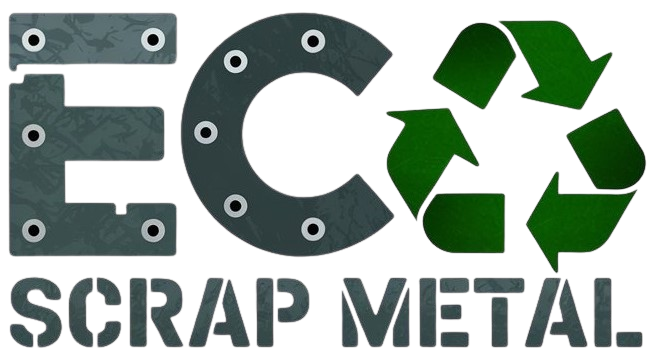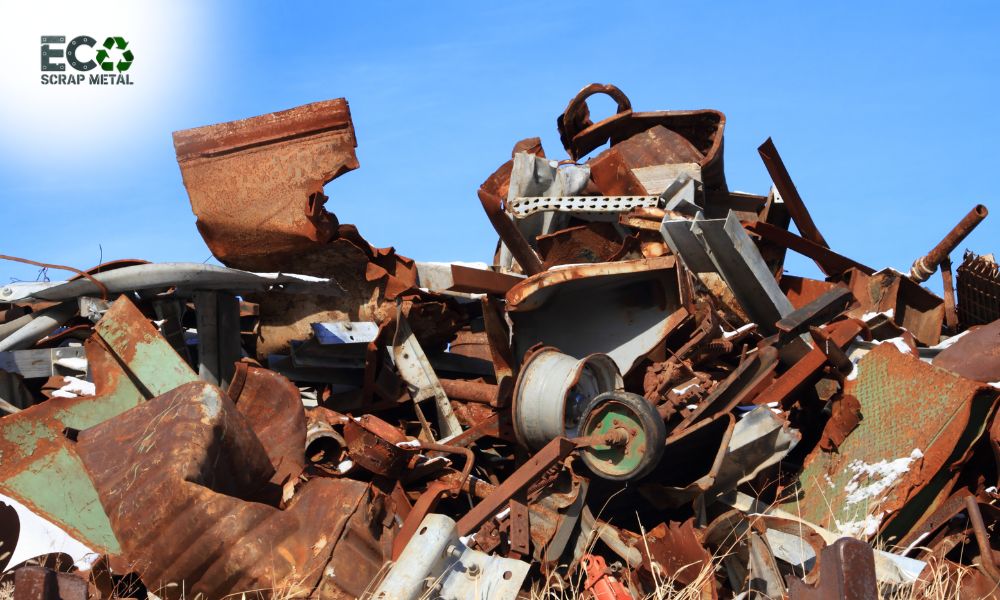Everything You Need to Know About Scrap Metal in Sydney
Sydney, the vibrant and bustling capital of New South Wales, is home to millions of residents, thriving businesses, and a flourishing economy. Like many major cities around the world, Sydney generates a vast amount of waste, including scrap metal. While much of this scrap metal is often discarded, it has immense potential for recycling and repurposing, contributing to a sustainable future and boosting the local economy.
In this comprehensive blog, we will explore everything you need to know about scrap metal in Sydney—what it is, the types of scrap metal, how it’s recycled, where to find scrap metal, and how to profit from it. Whether you’re looking to dispose of scrap metal, make money, or simply learn more about the recycling process, this guide covers it all.
What is Scrap Metal?
Scrap metal refers to any metal waste that is no longer in use, but still holds value due to its metal content. It can come from various sources, including discarded appliances, vehicles, construction materials, and industrial machinery. Instead of being sent to landfills, scrap metal can be recycled, melting down and repurposed into new products or raw materials.
The process of recycling scrap metal is environmentally friendly, reduces energy consumption, and lowers the need for mining new metals. In Sydney, scrap metal recycling plays a significant role in reducing the city’s carbon footprint and conserving natural resources.
Types of Scrap Metal
There are two main categories of scrap metal: ferrous metals and non-ferrous metals. Each type has different characteristics and recycling processes.
1. Ferrous Metals
Ferrous metals are those that contain iron. They are typically magnetic and are found in a variety of everyday items. Ferrous metals include:
- Steel: Found in construction materials, machinery, tools, and large appliances like refrigerators, washing machines, and ovens.
- Cast Iron: Used in heavy-duty applications like engine blocks, pipes, and radiators.
- Wrought Iron: Used in items such as fences, gates, and railings.
Ferrous metals are often more abundant and cheaper to recycle than non-ferrous metals due to their iron content.
2. Non-Ferrous Metals
Non-ferrous metals do not contain iron and are generally more valuable because they are more difficult to extract. Non-ferrous metals are typically lighter, resistant to corrosion, and do not rust. These include:
- Aluminum: Used in packaging (like cans), car parts, window frames, and household items.
- Copper: Copper scrap is commonly found in electrical wiring, plumbing pipes, and electrical components.
- Brass: A mixture of copper and zinc, used in plumbing fittings, decorative items, and musical instruments.
- Lead: Found in old batteries, roofing materials, and some electronic components.
- Stainless Steel: Often used in kitchen appliances, medical equipment, and high-end construction materials.
Non-ferrous metals are highly sought after for recycling due to their high resale value.
How Is Scrap Metal Recycled in Sydney?
The recycling of scrap metal is a multi-step process that involves sorting, cleaning, and melting the metal to create new products. Here’s a breakdown of the typical recycling process:
- Collection and Sorting: Scrap metal is gathered from various sources, such as businesses, construction sites, or homes. Once collected, the metal is sorted into different categories based on type, including ferrous and non-ferrous metals. Sorting ensures that metals are processed efficiently and that contaminants (such as plastic or paint) are removed.
- Shredding: The sorted metal is often shredded into smaller pieces. Shredding makes the metal easier to handle and transport, and also helps separate different metals from each other.
- Cleaning: Before the metal can be recycled, it may need to be cleaned to remove impurities such as oil, grease, and rust. In some cases, this step involves soaking or applying chemicals to break down contaminants.
- Melting: Once cleaned, the scrap metal is melted in large furnaces. The temperature required for melting varies depending on the metal type. For example, aluminum melts at a lower temperature than steel or copper. This process turns the metal into a liquid form, which can then be molded into new products.
- Refining and Purification: Some metals, like copper and aluminum, are purified during the melting process to ensure that they are free of impurities. This is important because high-quality metal ensures the creation of durable and valuable end products.
- Casting: After melting and purification, the metal is poured into molds to form new shapes. These shapes are typically ingots, which can be further processed into specific items such as pipes, sheets, or wires.
- Distribution: The newly formed metal products are then distributed to manufacturers who use the recycled material in their production processes. This cycle helps conserve raw materials and reduces the environmental impact of mining.
Where to Find Scrap Metal in Sydney
If you are looking to find scrap metal in Sydney—whether to recycle or to profit from it—there are several places where you can source scrap metal:
1. Construction Sites
Construction sites are a goldmine for scrap metal, particularly ferrous metals like steel and iron. Builders often discard leftover metal materials after projects, which can be salvaged for recycling.
2. Industrial and Manufacturing Facilities
Factories, warehouses, and industrial facilities generate a lot of scrap metal as part of their manufacturing processes. Machines often break down, leaving behind components made of scrap metal, which can be collected and recycled.
3. Household Items
Households generate scrap metal, often in the form of old appliances such as refrigerators, washing machines, air conditioners scrap, and microwaves. Old furniture and broken tools can also be made from scrap metal.
4. Automotive Scrap
End-of-life vehicles (ELVs) are a significant source of scrap metal. Parts such as engines scrap, body panels, wheels, and exhaust systems can be recycled. Car wreckers and salvage yards in Sydney often offer scrap metal for collection.
5. Scrap Metal Dealers and Yards
There are numerous scrap metal dealers and yards throughout Sydney that buy scrap metal. These businesses accept a wide range of metal types and offer competitive prices. If you have a large quantity of scrap metal, selling it to these dealers can be a good option.
How to Profit from Scrap Metal in Sydney
Recycling scrap metal is not only beneficial for the environment but can also be a lucrative endeavor. Here’s how you can make money from scrap metal in Sydney:
- Collect Scrap Metal: Start by gathering scrap metal from various sources like your home, work, construction sites, or even from people who may be willing to give it away.
- Sort and Clean: Sort the metals by type—ferrous and non-ferrous—and clean them to remove any contaminants. Clean, high-quality metal fetches better prices.
- Weigh the Scrap Metal: Most scrap metal dealers pay based on the weight of the metal you bring in. Make sure to weigh the scrap to know its value before heading to a recycling center.
- Find a Reputable Dealer: Research dealer for scrap metal in Sydney to find the ones that offer competitive prices. You can check online reviews or ask for recommendations from others in the scrap metal industry.
- Transport the Metal: Once you’ve collected and sorted your scrap metal, transport it to the recycling center. If you have a large quantity, you may want to hire a truck to make the process easier.
- Get Paid: Once at the dealer, you will be weighed, and the metal will be purchased based on its weight and type. Non-ferrous metals like copper and aluminum generally pay more than ferrous metals like steel and iron.
By following these steps, you can turn scrap metal into a profitable business. Many people even build small scrap metal collection businesses that provide a steady stream of income.
Environmental Impact of Scrap Metal Recycling
Recycling scrap metal has several environmental benefits:
- Energy Savings: Recycling metal uses significantly less energy than mining, refining, and processing new metals. For example, recycling aluminum saves up to 95% of the energy required to produce new aluminum from bauxite ore.
- Reduction in Greenhouse Gas Emissions: Using less energy means fewer greenhouse gas emissions. Recycling scrap metal helps reduce the carbon footprint associated with metal production.
- Conservation of Natural Resources: Recycling metal conserves natural resources, such as iron ore, copper, and aluminum. It reduces the need for mining, which can be harmful to ecosystems.
- Waste Reduction: By recycling scrap metal, less waste ends up in landfills. This helps reduce landfill space and the pollution associated with waste disposal.
Conclusion
Scrap metal recycling in Sydney is not only an important part of the city’s waste management system but also a great opportunity for individuals and businesses to make money while contributing to environmental sustainability. By understanding the different types of scrap metal, the recycling process, and the ways you can profit from it, you can make a positive impact on both your wallet and the planet. Whether you’re a recycler, a business, or a concerned citizen, your efforts can help Sydney become a more sustainable and efficient city.
If you’re ready to dive into the world of scrap metal in Sydney, there’s no better time than now. So start collecting, sorting, and recycling—you’ll be helping the environment while making a difference to your pocketbook!

